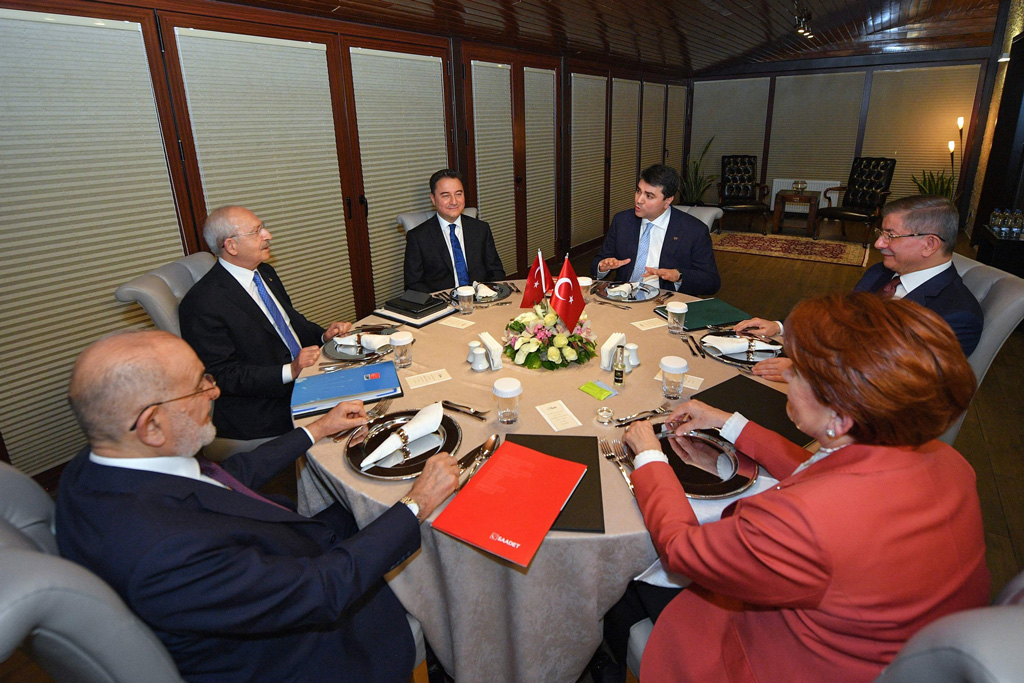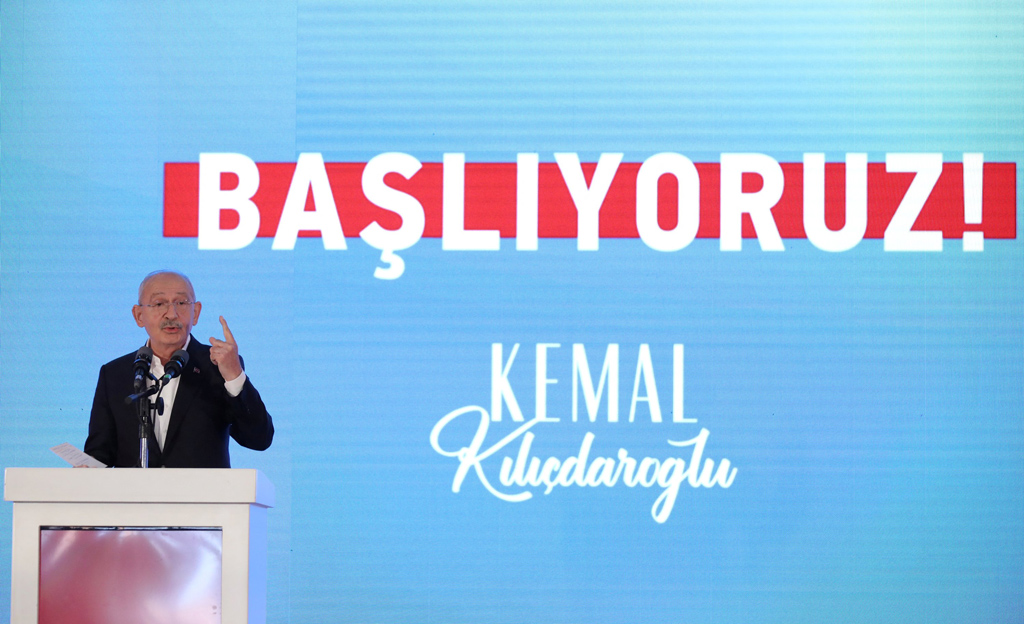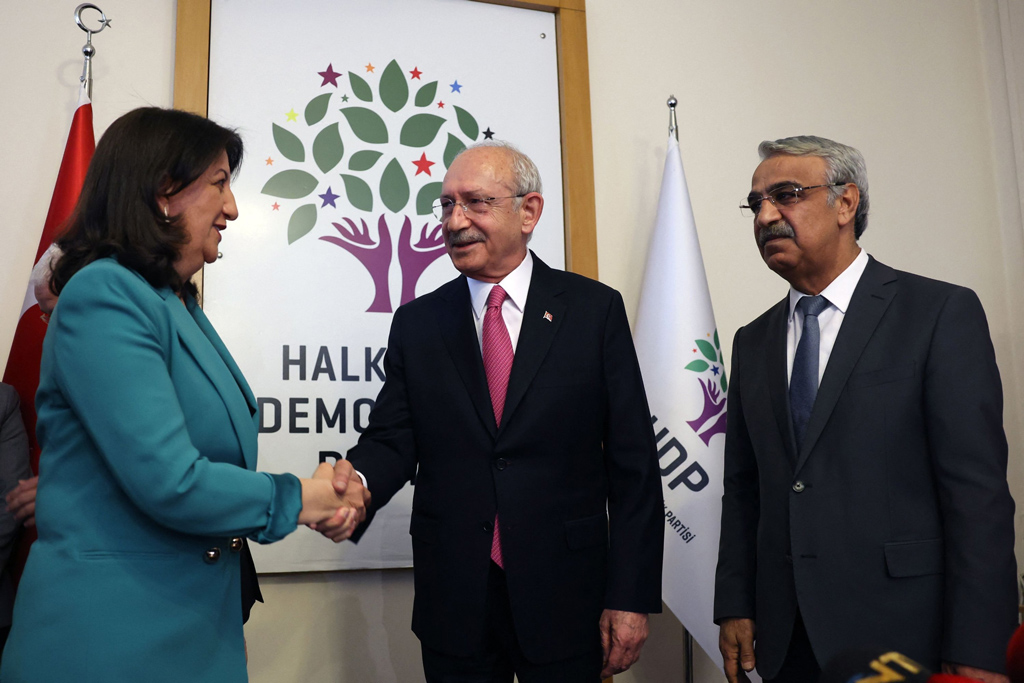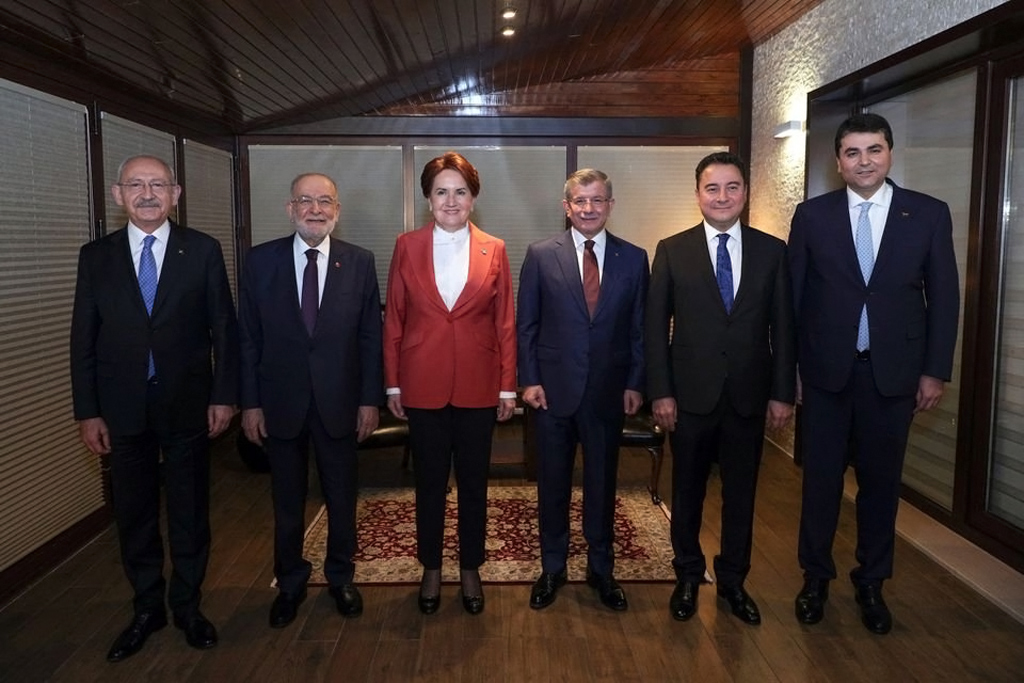The leaders of six opposition parties held their
first roundtable meeting on Feb. 12. Let me repeat that the meeting, which the main opposition Republican People’s Party (CHP) hosted, was CHP Chairperson Kemal Kılıçdaroğlu’s roundtable meeting. In other words, the CHP chairperson remains the main figure in the opposition’s quest for a grand coalition of 6+1 parties. It appears, however, that the fringe parties, too, contributed to the negotiations and future plans. Specifically, the Future Party (GP) and the Democracy and Progress Party (DEVA) came up with the ideas of “a permanent and structural alliance,” “common principles” and “a clear roadmap for the transition period.”
As such, these movements serve as part of the “brain trust” behind the CHP, which has never managed to win an election against President Recep Tayyip Erdoğan. Those mentors, who feel compelled to justify their decision to jump on the CHP bandwagon, maintain that winning the 2023 elections won’t be enough. As such, they are taking into consideration the possibility that an election victory by the opposition, which remains highly fragmented, could lay the groundwork for the ruling Justice and Development Party's (AK Party) return to power with greater popular support.
Although many commentators focus on GP Chairperson Ahmet Davutoğlu when analyzing the roundtable meeting, I believe DEVA Chairperson Ali Babacan has been more influential. The DEVA chairperson recently made the following statement on the roundtable’s future: “One ought to think whether it would be right to put the ballot box in front of voters, after a short while, in the face of such great problems. If the (opposition) parties agree, we would position ourselves as a coalition (government) with a five-year plan and clearly established principles. We could explain to the people that we will stick to a parliamentary-like system until the actual change in five years.”
The system model proposals
Even though it is surprising that former Prime Minister Davutoğlu and former Finance Minister Babacan, who launched their parties intending to govern single-handedly, are so eager to take a seat at the CHP’s table and become a junior partner in some coalition. Something else also catches my attention. It is highly likely that Babacan’s idea of “imagining the transition as a five-year period” will gain support at the negotiating table. Indeed, Kılıçdaroğlu and Meral Akşener, the Good Party (IP) chairperson, could be open to that proposal, which would consolidate their own positions as well as of their respective parties. Although there could be cracks in the plans of the opposition bloc regarding a joint presidential candidate and power-sharing, one can assume that the roundtable will remain intact.
What I find interesting, however, is that the roundtable has produced two proposals (one overt and the other, covert) regarding the political system. One of those is the presidential system, which they would use to manage the transition period, and the other is the imaginary model of a parliamentary system – which would be used exclusively for propaganda. In other words, they dream of a parliamentary system but live in the reality of a new presidential system.
Those two intertwined proposals, which the opposition presented to conceal its fragmentation, are a perfect anomaly. I must say that it is quite disingenuous, too. They want to place an unmanageable coalition with a level of complexity that Turkey has not witnessed even under the old parliamentary system, within the presidential system. This is how a member of the CHP gets the symbolic presidency while Akşener gets the prime ministry – akin to the first vice president – and, perhaps, the remaining chairperson will take up cabinet posts on steroids. For the record, what the opposition proposes is not even at par with the coalitional presidentialism in Latin America. I kept saying that the opposition should come up with its own proposal for the presidential system, but, frankly, I had not expected this monstrosity.
The biggest disadvantage
My view is that the opposition’s biggest disadvantage is the combination of two models – which some politicians, who had the luxury of engaging in politics under Erdoğan’s leadership, developed as some kind of sophisticated brain trust. Those politicians, who sat around the roundtable, could shake hands on a transition process. Yet the voters prefer simplicity and clarity. They want to see a candidate who will address the problems of today and tomorrow. They do not want their president, who will enter office with a majority, to live under the guardianship of party chairs. It is extremely difficult to sell the electorate on that oligarchical plan with “two proposed systems, six chairpersons, two co-chairs and a presidential candidate.”









